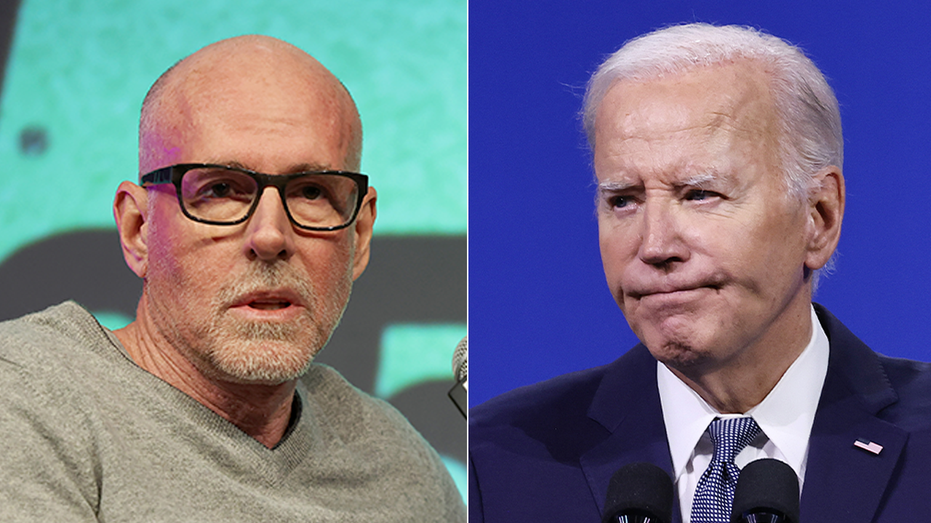- by foxnews
- 25 May 2025
‘Most have thrown their hands up’: has the US forgotten about Covid?
‘Most have thrown their hands up’: has the US forgotten about Covid?
- by theguardian
- 20 Aug 2022
- in news

Despite signs that indicate the latest Covid-19 surge is slowing down, an average of 400 deaths in the US is still reported on a daily basis.
Various mask and social distancing mandates across the country are becoming anything but strictly enforced.
But as Americans and many of their elected officials go about their daily lives, many healthcare professionals still on the frontlines of the pandemic and severely affected Covid-19 patients are left wondering whether the rest of us are moving too quickly from the worst days of the pandemic.
Have we simply forgotten about Covid-19?
Data obtained earlier this month by the Centers for Disease Control and Prevention (CDC) reveals that the rate of new infections has been decreasing, with the country reporting an average of 107,000 new cases a day. This marks a 12% decrease compared to infection rates two weeks ago.
Even though hospital admission rates have been increasing across the US this summer as a result of highly infectious variants, the amount of patients currently hospitalized with Covid-19 has plateaued at 43,000 patients, according to the Department of Health and Human Services.
By contrast, more than 160,000 virus-positive patients were hospitalized during last winter's surge. Nevertheless, the daily average of 400 deaths across the country since spring remain a concerning figure for healthcare officials.
Arghavan Salles, a clinical associate professor at Stanford University's School of Medicine, expressed her frustrations over how officials and the public appears to be moving on from Covid-19, which continues to put healthcare workers under huge strain. "It feels somewhat like a personal affront, like all our sacrifices mean absolutely nothing because in the end, no one cares," said Salles, who worked at ICUs during the height of the pandemic.
The majority of the recent infections come from BA.4 and BA.5, subvariants of Omicron whose original strain first emerged over eight months ago. According to the CDC, the two variants appear to represent over 80% of the US cases.
With the virus continuing to mutate, breakthrough and rebound infections are becoming increasingly common, especially with the BA.5 variant. New data published in June by Harvard Medical School researchers reveal that the BA.4 and BA.5 appear to evade antibody responses from people who have been fully vaccinated and boosted and those who have previously gotten Covid-19.
"We observed threefold reductions of neutralizing antibody titers induced by vaccination and infection against BA.4 and BA.5 compared with BA1 and BA2, which are already substantially lower than the original Covid-19 variants," the researchers said in a statement. BA.4 and BA.5 have been the fastest-spreading variants since the pandemic began.
More recently, reports have been emerging of another Omicron subvariant, BA.4.6, which is Omicron's seventh major subvariant since the variant first appeared in Africa last November. According to health experts, BA.4.6 possesses a certain mutation that gives it an increased ability to avoid antibodies.
Currently, BA.4.6 has a 10% growth advantage of BA.5 and experts predict that the advantage will only grow larger.
As the pandemic stretches on and vaccines roll out, numerous restrictions are being eased. States have been lifting strict capacity limits and large-scale mask orders while many others are no longer requiring proof of vaccination to travel or to enter dining facilities.
Last week, the CDC issued new guidelines that loosened its recommendations on social distancing and quarantining. Individuals who were exposed to Covid-19 no longer have to quarantine unless they develop symptoms or test positive.
Unvaccinated people who have been exposed should test on the fifth day of exposure and wear a "high-quality mask". Additionally, the CDC no longer recommends screening asymptomatic individuals who have not had a known exposure to the virus.
"This guidance acknowledges that the pandemic is not over, but also helps us move to a point where Covid-19 no longer severely disrupts our daily lives," CDC epidemiologist Greta Massetti said in a statement.
Salles disagrees.
"The new guidance suggesting people who have been exposed don't need to quarantine but should instead wear a mask is likely to accelerate the spread of disease, especially because they don't even say what kind of mask. What is, in their view, a 'high-quality mask'? And, given the lack of mask mandates and the overall low rates of people wearing masks, it seems unlikely people will comply with this anyway," she said.
Not many people are aware of other people's health problems, medications or their immune systems. As a result, Salles said "this guidance will put more people, and especially those with disabilities and immunocompromised status, at greater risk for getting sick".
Currently, only 67% of the US population are considered fully vaccinated. Moreover, only 32% of the population have received a booster dose. Healthcare officials have repeatedly stressed the effectiveness of vaccines in mitigating Covid-19. However, vaccine hesitancy as a result of misinformation, wariness and other factors continue to hold many back.
Earlier this month, Dr Anthony Fauci, director of the National Institute of Allergy and Infectious Diseases, warned individuals that if they are not up-to-date with their vaccines or booster shots, they will experience a difficult fall and winter.
"If they don't get vaccinated or they don't get boosted, they're going to get into trouble," Fauci said, adding that the country's vaccine and booster rates are "quite discouraging". According to Fauci, booster shots that target newer variants such as BA.5 will probably be available next month. "If you aren't worried about your personal risk, do it for your communal responsibility," he said.
In May, the White House Covid-19 response coordinator, Dr Ashish Jha, predicted that the US may experience a major surge in winter with 100m new infections and a significant number of deaths and hospitalizations.
"We are indeed very much still in the middle of the pandemic with intense transmission globally with close to a million cases daily and sadly over 14,000 people dying every week," World Health Organization spokesperson Margaret Harris said. "With such high levels of transmission it is not surprising that the Sars-CoV-2 virus continues to evolve."
With the pandemic slowly moving out of the public's consciousness, healthcare workers continue to face a daily battle, fighting not only the virus but also significant staffing shortages in the field and a slew of mental health issues.
Many hospitals across the US are facing a severe nursing shortage. In New York, the nursing shortage is at an "all-time high", according to Matthew Allen, a nurse at Mount Sinai hospital in New York City who spoke to the New York Times.
Judy Sheridan-Gonzalez, a nurse in the city's Montefiore medical center who has spent 40 years in emergency rooms, told Spectrum News that she used to attend to six patients at a time. Now she sometimes attends to 20. "It's impossible to cover people during their breaks. You do the best you can," she said.
According to a recent survey by the Massachusetts Health and Hospital Association, 13.6% of nursing positions at acute-care hospitals in Massachusetts are unfulfilled. There are over 5,000 nursing positions that need to be filled statewide.
In April 2020, a top emergency room doctor in New York City killed herself after working on the devastating frontlines of Covid-19. "She tried to do her job, and it killed her," Dr Philip Breen said of his daughter, Dr Lorna Breen, who was the medical director of the emergency department at New York-Presbyterian Allen hospital.
"Our frontline workers have yet to see a post-Covid world, and that experience is one we'll feel for years to come," Dr Nicole Christian-Brathwaite, a psychiatrist at Array Behavior Care, said.
In addition to healthcare workers, many individuals are still severely affected by the pandemic as they experience post-Covid conditions or long Covid. Symptoms include protracted brain fog, fatigue, chest pains, hallucinations, heart palpitations and difficulty breathing. Research is increasingly showing that hundreds of millions of people are probably suffering from long Covid-19 globally.
"Every time a person is infected, they have a risk of developing long Covid," said Salles. "I cannot think of any other disease that has long-term negative consequences like this that people willingly expose themselves to.
"Even out of pure self-interest, people should want to avoid long Covid. Yet people are exposing themselves to Covid every day by going into poorly ventilated indoor spaces without masks," Salles told the Guardian.
"I don't see how we, as a society, 'move on' from a pandemic that is very much still ongoing. It seems like most people, including the government, have thrown their hands up as though there's nothing we can do. We have lost over a million people to this pandemic, and rather than face that truth and do what it takes to prevent further loss, people are choosing to act like it never happened," she said.
- by foxnews
- descember 09, 2016
Rare 1,200-year-old Christian cross found in field by metal detectorist
The City of Leeds in the U.K. recently revealed a Saxon treasure: a gilded pendant from Northumbria's Christian past, offering a glimpse into early medieval life.
read more


